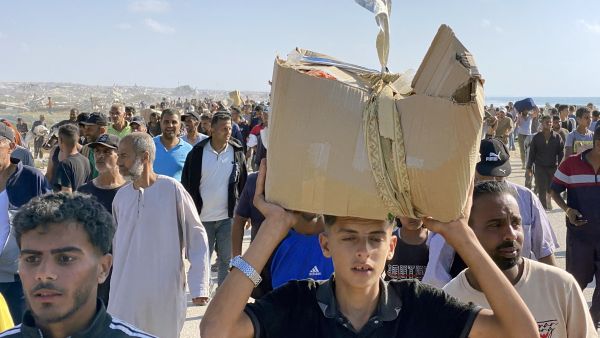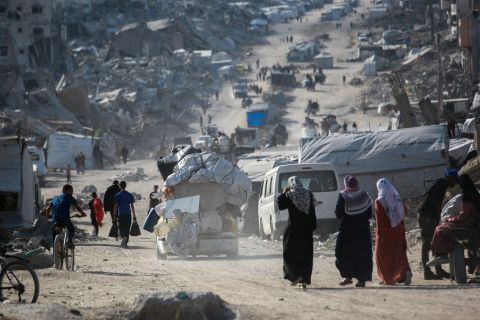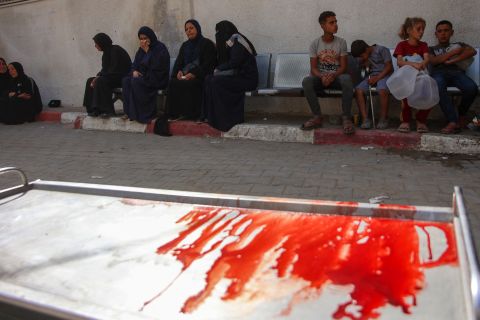ALBAWABA- A wave of distress and conflicting narratives surrounds the humanitarian situation in Gaza, as footage showing desperate civilians pleading for help from a U.S.-backed aid organization prompted international concern.
“The video is heartbreaking,” said Stéphane Dujarric, spokesperson for UN Secretary-General António Guterres, emphasizing the urgent need to scale up humanitarian operations to prevent famine and meet the escalating needs of civilians in the Strip.
“We have a detailed, practical plan, supported by member states, to deliver aid to Gaza,” Dujarric stated. “But for it to work, all crossings into the Gaza Strip must be opened for both humanitarian and commercial goods.”
On the ground, the situation remains volatile. According to Israeli Army Radio, large crowds of Palestinians stormed a humanitarian aid distribution center in Rafah, southern Gaza.
Israeli media reports claim that armed personnel working for a U.S.-based company lost control of the facility amid the chaos.
The U.S.-backed Gaza Humanitarian Foundation, overseeing the distribution effort, accused Hamas of obstructing civilian access to aid. The organization said it has distributed approximately 8,000 food boxes, equivalent to 462,000 meals, but warned that continued interference hampers the operation.
In stark contrast, the Gaza Government Media Office dismissed the allegations as “blatant slander” and “a dangerous deviation from humanitarian neutrality.” It rejected claims that the resistance is blocking access, calling them “complete fabrications.” The office also condemned the so-called “safe distribution sites” as “racist ghettos” imposed under Israeli supervision.
Amid these tensions, German Chancellor Friedrich Merz expressed deep concern about the Israeli military escalation in Gaza and voiced his horror at the suffering endured by civilians.
Meanwhile, Israeli Finance Minister Bezalel Smotrich portrayed the start of aid distribution as a strategic breakthrough. “This marks a turning point in the war that will achieve victory and dismantle Hamas,” he said.













